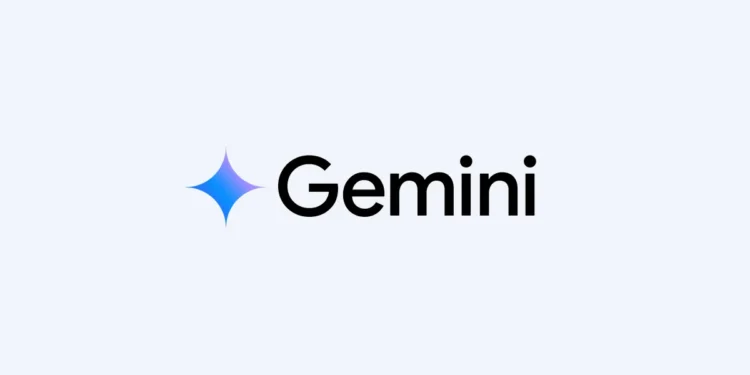Finally, Android users can have their AI assistant and privacy too
The promise of AI assistants has always come with a privacy catch-22: get helpful automation by surrendering your personal data, or maintain privacy by sacrificing functionality. Google’s upcoming Gemini update, rolling out July 7th, finally breaks this false choice for Android users.
For the first time, you’ll be able to let Gemini control your phone’s core features making calls, sending messages, setting timers while keeping your conversations completely private from Google’s AI training datasets. This isn’t just a minor settings tweak; it’s a fundamental shift in how we can interact with AI assistants.
What’s Actually Changing
According to an email obtained by Android Police, Google is updating Gemini to work with Phone, Messages, WhatsApp, and Utilities “whether your Gemini Apps Activity is on or off.” This technical language masks a significant privacy breakthrough.
Currently, if you want Gemini to perform device tasks like calling a contact or sending a WhatsApp message, you must allow Google to use those conversations to train and improve their AI models. The new update severs this connection entirely.
Here’s what you’ll be able to do with privacy protection enabled:
- Make phone calls through voice commands
- Send text messages and WhatsApp messages
- Set alarms, timers, and reminders
- Control media playback
- Access utility functions
All of this happens locally on your device, with your conversations staying private from Google’s data collection systems.
Understanding Gemini Apps Activity
The key to this privacy enhancement lies in Google’s “Gemini Apps Activity” setting. When disabled, this setting prevents your chatbot conversations from being “used to provide, improve, develop, and personalize” Google’s products and AI models.
Previously, disabling this setting meant sacrificing Gemini’s most useful features. You could chat with the AI about general topics, but couldn’t ask it to actually do anything meaningful with your phone. The July update eliminates this trade-off.
Google clarified that users maintain full control: “They can now use Gemini to complete daily tasks on their mobile devices like send messages, initiate phone calls, and set timers while Gemini Apps Activity is turned off. With Gemini Apps Activity turned off, their Gemini chats are not being reviewed or used to improve our AI models.”
Why This Matters Beyond Android
This update arrives at a critical moment in AI assistant evolution. Google plans to replace the traditional Google Assistant with Gemini across Android devices later this year, making privacy controls more important than ever.
The timing suggests Google recognizes that mainstream AI adoption requires trust, not just capability. As AI assistants become more deeply integrated into our daily routines, users increasingly demand granular control over their data.
The broader implications extend beyond Google:
- Sets new expectations for AI privacy standards
- Demonstrates that local processing can maintain functionality
- Pressures competitors to offer similar privacy-first options
- Validates user concerns about AI data collection
The Technical Reality
Google’s implementation reveals important technical nuances. Even with Apps Activity disabled, conversations are still temporarily stored for 72 hours for security purposes. This brief retention period allows Google to detect abuse and maintain system security without contributing to long-term AI training datasets.
Your Gemini interactions also won’t appear in your Google activity log when privacy mode is enabled, creating a cleaner separation between your AI usage and your broader Google account data.
What Users Should Do Now
The update will roll out automatically, but you’ll want to actively manage your privacy settings:
- Review your current Gemini Apps Activity setting in your Google account privacy controls
- Test the new functionality when it arrives July 7th
- Verify that sensitive conversations aren’t being logged in your activity history
- Experiment with voice commands you previously avoided due to privacy concerns
The key insight here is that privacy and functionality no longer require compromise. You can finally have an AI assistant that’s both genuinely helpful and respectful of your data boundaries.
Looking Forward
Google’s privacy first approach to Gemini integration suggests a maturing understanding of user expectations around AI. As these assistants become more capable and more ubiquitous, the companies that prioritize user control alongside functionality will likely see greater adoption.
This update represents more than a feature enhancement it’s a signal that the AI industry is beginning to take privacy seriously as a competitive advantage rather than an inconvenient obstacle.
For Android users, July 7th marks the beginning of a new era: AI assistance without the privacy penalty. The question now is whether other tech giants will follow Google’s lead or continue treating user data as the inevitable cost of AI innovation.
Ready to experience private AI assistance? Update your Gemini settings when the feature rolls out and reclaim control over your digital privacy.
This article was rewritten with the aid of AI
At Techsoma, we embrace AI and understand our role in providing context, driving narrative and changing culture.














